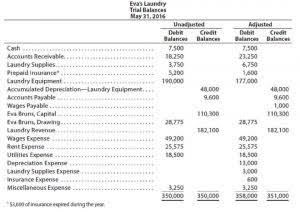Atlantas Victory Church Gives $100 Million to Missions

If your church does not have a website that collects online donations, you miss out on a substantial amount of funds. Now that you know how to spend your income, we need to discuss how to make that income possible. Tithes and offerings remain a primary how to create a church budget source of income, but more and more churches have come to accept the necessity of fundraising for your church. Events, online campaigns, and community partnerships should all be part of your church’s fundraising plan.
- This budget year, Victory Church will give about $8 million to mission causes.
- Let members know they can go talk to those volunteers before and after service and they will be glad to walk them through the steps.
- A church budget is a financial plan that outlines how a church will allocate its resources over a specified period of time.
- Rouse and the leaders at Victory Church do a lot of leadership development with other pastors, in which they share their vision and the importance of generosity.
- When you know where you’d like to be headed as a community, you can make better decisions about the type of budget you need.
Mastering Church Budgeting: Strategies for Effective Financial Management
Before the budget can be officially implemented, it typically needs to go through an approval process. This may involve presenting the Accounting for Churches budget to church leadership or a finance committee for review and approval. In order to effectively budget, you need to analyze past income trends. This should include tithes, offerings, grants, special gifts, and any other forms of income. It’s also important to analyze expenses from previous years to identify any areas of overspending or potential cost-saving opportunities.

Program-Based Budgeting
- In the face of potential financial challenges, churches must navigate the intricacies of handling a budget shortfall with foresight.
- Most of these articles agree that the largest share should cover salaries and wages for your ministry and staff.
- This can help to alleviate any potential pushback or questioning from church members or leaders.
- – First, a financially healthy church is not spending more than it takes in.
- Simply put, budgeting is focused on managing today’s money wisely, while financial planning is focused on preparing for tomorrow’s needs and opportunities.
- This means that the budget should reflect the church’s priorities and goals.
A balanced budget ensures that income covers expenses and enables the church to allocate resources effectively. The minister should be left to worry about the spiritual growth of his or her flock, while the person managing the budget should view the church as a business. There’s a lot to think about when you’re putting a church budget together, but it’s a vital process for safeguarding your church’s financial future.
Reasons Annual Planning Is Harder In a Small Church

Remember, a well-managed budget is more than just numbers on a page; it’s a reflection of your church’s priorities and a tool for achieving its vision. As you move forward, keep the lines of communication open, and continue to seek the wisdom and guidance of your community and leadership. Together, you can ensure that your church remains financially sound and focused on its mission for years to come.


Emergency reserves are important in case your income stream falters, while growth costs are essential for future expansion. Be sure to set aside money for both these funds once you budget for expenses and church programs. You can also consider budgeting church finances based payroll on the programs you run. This kind of budgeting gives you extra control over which programs get more funding to achieve their goals.
- This committee should consist of members with a range of financial and budgeting expertise, as well as representation from different ministries within the church.
- This can also help to ensure transparency and fairness in the budgeting process.
- Budgeting should be a transparent process involving key stakeholders.
- For example, if you notice that you are spending too much in one area, you can either plan a fundraising effort orencourage your membership to give more.
- Throughout the Bible, we are asked to fund missionary work, pay our church leaders and ministry, and give to the poor.
It’s always a good idea to have a contingency fund in your budget to account for unexpected expenses that may arise throughout the year. This can help prevent financial strain on the church if an emergency were to occur. Next, you’ll need to account for all of the church’s operating expenses. This can include salaries for staff members, utilities, maintenance costs, insurance premiums, and any other recurring expenses. Ideally, you should have a budget committee that is responsible for creating and maintaining the church budget. This committee should consist of members with a range of financial and budgeting expertise, as well as representation from different ministries within the church.




